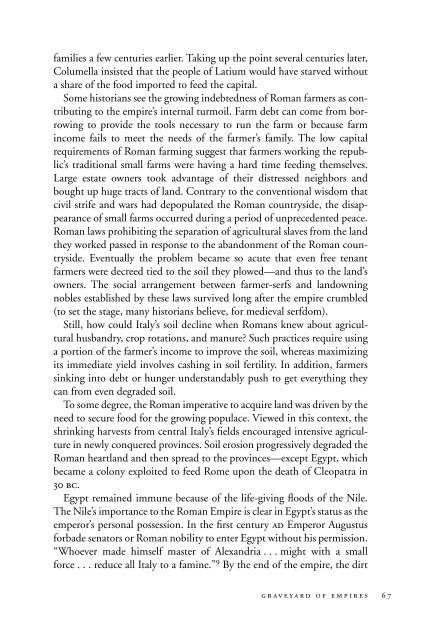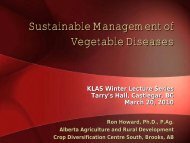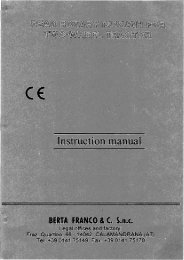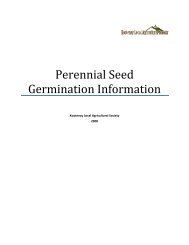Dirt: The Erosion of Civilizations - Kootenay Local Agricultural Society
Dirt: The Erosion of Civilizations - Kootenay Local Agricultural Society
Dirt: The Erosion of Civilizations - Kootenay Local Agricultural Society
Create successful ePaper yourself
Turn your PDF publications into a flip-book with our unique Google optimized e-Paper software.
families a few centuries earlier. Taking up the point several centuries later,<br />
Columella insisted that the people <strong>of</strong> Latium would have starved without<br />
a share <strong>of</strong> the food imported to feed the capital.<br />
Some historians see the growing indebtedness <strong>of</strong> Roman farmers as contributing<br />
to the empire’s internal turmoil. Farm debt can come from borrowing<br />
to provide the tools necessary to run the farm or because farm<br />
income fails to meet the needs <strong>of</strong> the farmer’s family. <strong>The</strong> low capital<br />
requirements <strong>of</strong> Roman farming suggest that farmers working the republic’s<br />
traditional small farms were having a hard time feeding themselves.<br />
Large estate owners took advantage <strong>of</strong> their distressed neighbors and<br />
bought up huge tracts <strong>of</strong> land. Contrary to the conventional wisdom that<br />
civil strife and wars had depopulated the Roman countryside, the disappearance<br />
<strong>of</strong> small farms occurred during a period <strong>of</strong> unprecedented peace.<br />
Roman laws prohibiting the separation <strong>of</strong> agricultural slaves from the land<br />
they worked passed in response to the abandonment <strong>of</strong> the Roman countryside.<br />
Eventually the problem became so acute that even free tenant<br />
farmers were decreed tied to the soil they plowed—and thus to the land’s<br />
owners. <strong>The</strong> social arrangement between farmer-serfs and landowning<br />
nobles established by these laws survived long after the empire crumbled<br />
(to set the stage, many historians believe, for medieval serfdom).<br />
Still, how could Italy’s soil decline when Romans knew about agricultural<br />
husbandry, crop rotations, and manure? Such practices require using<br />
a portion <strong>of</strong> the farmer’s income to improve the soil, whereas maximizing<br />
its immediate yield involves cashing in soil fertility. In addition, farmers<br />
sinking into debt or hunger understandably push to get everything they<br />
can from even degraded soil.<br />
To some degree, the Roman imperative to acquire land was driven by the<br />
need to secure food for the growing populace. Viewed in this context, the<br />
shrinking harvests from central Italy’s fields encouraged intensive agriculture<br />
in newly conquered provinces. Soil erosion progressively degraded the<br />
Roman heartland and then spread to the provinces—except Egypt, which<br />
became a colony exploited to feed Rome upon the death <strong>of</strong> Cleopatra in<br />
30 bc.<br />
Egypt remained immune because <strong>of</strong> the life-giving floods <strong>of</strong> the Nile.<br />
<strong>The</strong> Nile’s importance to the Roman Empire is clear in Egypt’s status as the<br />
emperor’s personal possession. In the first century ad Emperor Augustus<br />
forbade senators or Roman nobility to enter Egypt without his permission.<br />
“Whoever made himself master <strong>of</strong> Alexandria ...might with a small<br />
force ...reduce all Italy to a famine.” 9 By the end <strong>of</strong> the empire, the dirt<br />
graveyard <strong>of</strong> empires 67






